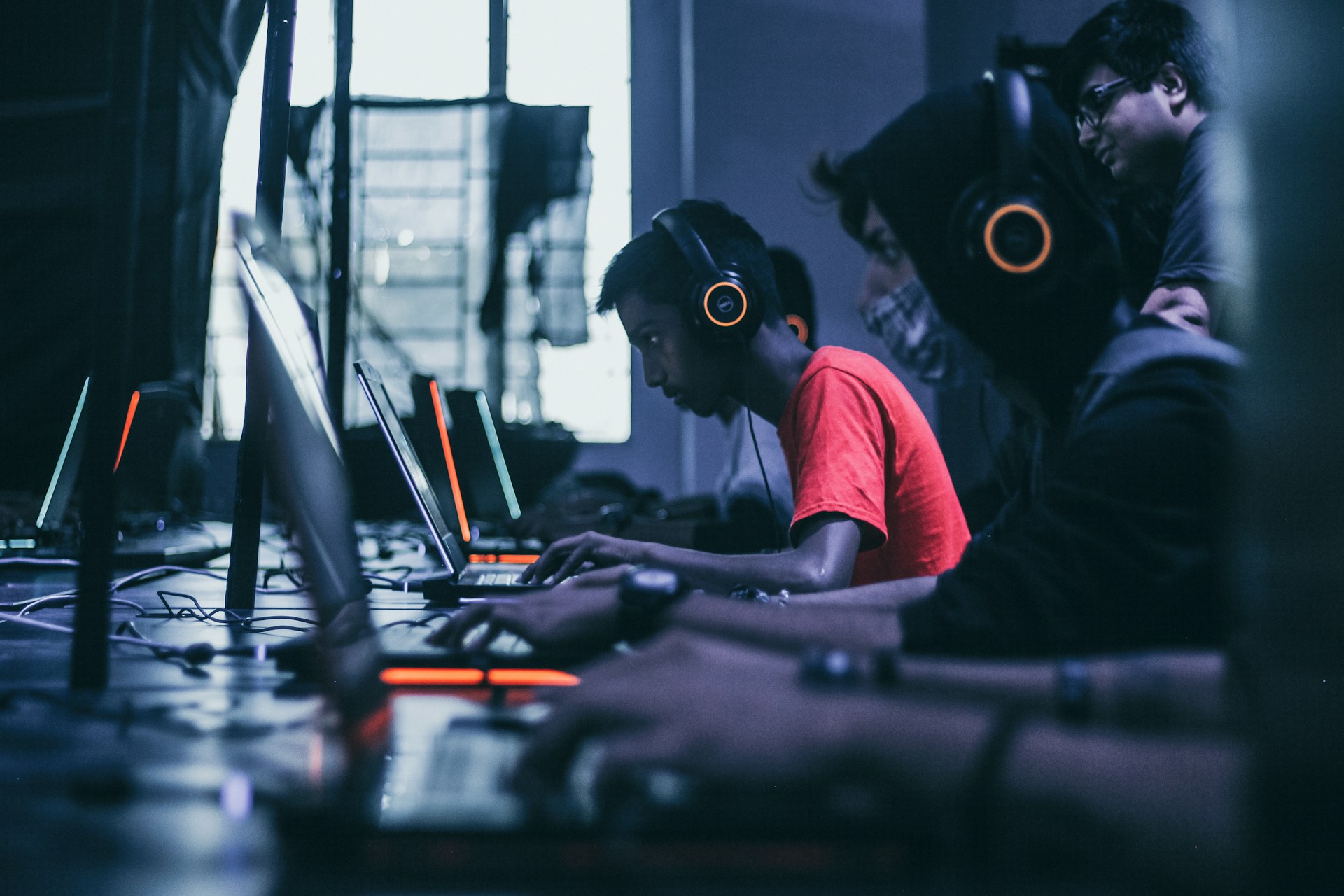Competitive gaming, or esports, has rapidly evolved into a global phenomenon. As the industry expands, accurately predicting player skill levels becomes increasingly vital. The capability to assess skills precisely can enhance matchmaking, create balanced games, and identify rising stars. This is where machine learning steps in. Leveraging machine learning techniques can vastly improve predictions, benefiting players, developers, and the esports community as a whole.
The Role of Data in Competitive Gaming
In competitive gaming, data is more than just numbers—it is the lifeline of the industry. Every match, move, and strategy generates a plethora of data points. Understanding this data is crucial in elevating the gaming experience for everyone involved.
Also to discover : What are the key challenges of developing cross-platform multiplayer games?
Machine learning excels in processing vast amounts of data swiftly and accurately. In esports, this data encompasses everything from win/loss ratios and kill/death counts to more intricate details like reaction times and strategic positioning. By analyzing these datasets, machine learning algorithms can identify patterns and trends that humans might overlook.
The data-driven approach enabled by machine learning provides an edge in predicting player skill levels. For instance, simple metrics like win rates might not accurately reflect a player’s true skill. However, machine learning can amalgamate numerous factors, providing a comprehensive skill assessment. This advanced capability helps in creating fairer matchmaking systems, ensuring players are matched based on their true skill levels.
Also to discover : How can developers ensure ethical use of AI-generated content in open-world games?
Data integrity is another critical aspect. Ensuring the data used is accurate and representative of a player’s performance is essential. Machine learning models can filter out anomalies and focus on genuine performance indicators, leading to more reliable skill predictions.
Machine Learning Algorithms in Skill Prediction
Machine learning algorithms are the engines driving skill prediction advancements in competitive gaming. Various algorithms can be tailored to meet the unique demands of esports, providing nuanced insights into player performance.
One commonly used algorithm is supervised learning, where a model is trained on labeled data. In the context of gaming, this could involve training a model on historical match data, with each player’s skill level as the label. Once trained, the model can predict the skill levels of new players based on their performance data.
Unsupervised learning is another powerful tool. It can identify clusters of players with similar playstyles or performance levels without predefined labels. This technique is particularly useful in games with diverse gameplay mechanics, where traditional metrics might not capture the full spectrum of player skills.
Reinforcement learning also holds promise in predicting player skills. By simulating game environments, reinforcement learning algorithms can observe how different strategies and actions impact outcomes. This method can uncover hidden aspects of player skill, offering deeper insights than conventional analysis.
Lastly, neural networks can process complex, non-linear relationships in data. Given the multifaceted nature of competitive gaming, neural networks’ ability to handle intricate datasets makes them invaluable for skill prediction.
Enhancing Matchmaking Systems
Effective matchmaking is at the heart of any competitive game. Players want balanced matches where their skills are challenged yet fairly matched. Machine learning can revolutionize matchmaking systems, enhancing the gaming experience for all participants.
Traditional matchmaking often relies on simple metrics like Elo ratings or win/loss ratios. While these systems have their merits, they can struggle with nuances and fail to reflect a player’s true capabilities. Machine learning, however, can consider a multitude of factors simultaneously, creating more accurate skill assessments.
For example, machine learning models can account for situational performance. A player might excel in certain game modes or under specific conditions. By analyzing these variables, machine learning can create a comprehensive player profile, leading to more precise matchmaking.
Moreover, machine learning can adapt in real-time. As players evolve, their skills and strategies change. Machine learning models can continuously update their predictions based on the latest data, ensuring matchmaking remains accurate and dynamic.
Machine learning also aids in detecting and mitigating smurfing—where high-skill players use low-level accounts to dominate beginners—which can severely disrupt matchmaking systems. By identifying patterns typical of smurf accounts, machine learning can flag and address these issues, maintaining the integrity of the gaming environment.
Identifying and Developing Talent
In the world of esports, identifying and nurturing talent is crucial for the growth of competitive gaming. Machine learning can play a pivotal role in this process, providing a systematic approach to talent identification and development.
Traditional scouting methods often rely on subjective assessments and limited data. Machine learning, however, can assess a vast array of performance metrics, uncovering potential that might be overlooked. By analyzing gameplay data, machine learning can identify emerging talents early, providing them with opportunities to develop and thrive.
For instance, machine learning can highlight players who consistently perform well under pressure or those with exceptional strategic thinking. These subtle yet critical attributes are key indicators of potential. By recognizing these traits, esports organizations can focus their resources on nurturing the right talent.
Furthermore, machine learning can personalize training programs. By assessing individual strengths and weaknesses, it can recommend tailored training regimens. This personalized approach ensures players receive the guidance they need to improve, optimizing their development.
Machine learning also helps in benchmarking. By comparing a player’s performance with established benchmarks, it can provide clear goals and targets. This objective feedback is invaluable for players striving to reach the top echelons of competitive gaming.
The Future of Machine Learning in Esports
The integration of machine learning in esports is still in its early stages, but the future holds immense potential. As technology advances, machine learning models will become even more sophisticated, offering deeper insights and more accurate predictions.
One promising area is predictive analytics. By using machine learning to forecast trends and outcomes, stakeholders can make informed decisions. This predictive capability can enhance everything from game development and player training to spectator engagement.
Another exciting development is the use of genetic algorithms. These algorithms mimic natural selection, evolving over time to find optimal solutions. In esports, genetic algorithms can refine strategies, optimize gameplay, and even design new game mechanics.
Augmented reality (AR) and virtual reality (VR) also present new frontiers. By integrating machine learning with AR and VR, players can receive real-time feedback and training in immersive environments. This synergy can elevate the training process, providing players with unparalleled learning experiences.
Moreover, ethical considerations will shape the future of machine learning in esports. Ensuring data privacy, preventing bias, and maintaining transparency will be paramount. As we navigate these challenges, a collaborative approach involving players, developers, and regulators will be essential.
Machine learning has the potential to revolutionize the way we predict player skill levels in competitive gaming. By harnessing vast amounts of data and utilizing advanced algorithms, machine learning can provide precise and dynamic skill assessments. This technology enhances matchmaking systems, identifies and develops talent, and offers a glimpse into the future of esports.
As the esports industry continues to grow, the adoption of machine learning will be crucial in maintaining fair and competitive environments. Players, developers, and fans alike will benefit from the advancements brought forth by machine learning, ensuring the continued evolution and success of competitive gaming.
Machine learning not only improves the accuracy of predicting player skill levels but also paves the way for a more balanced, inclusive, and exciting future for competitive gaming.











